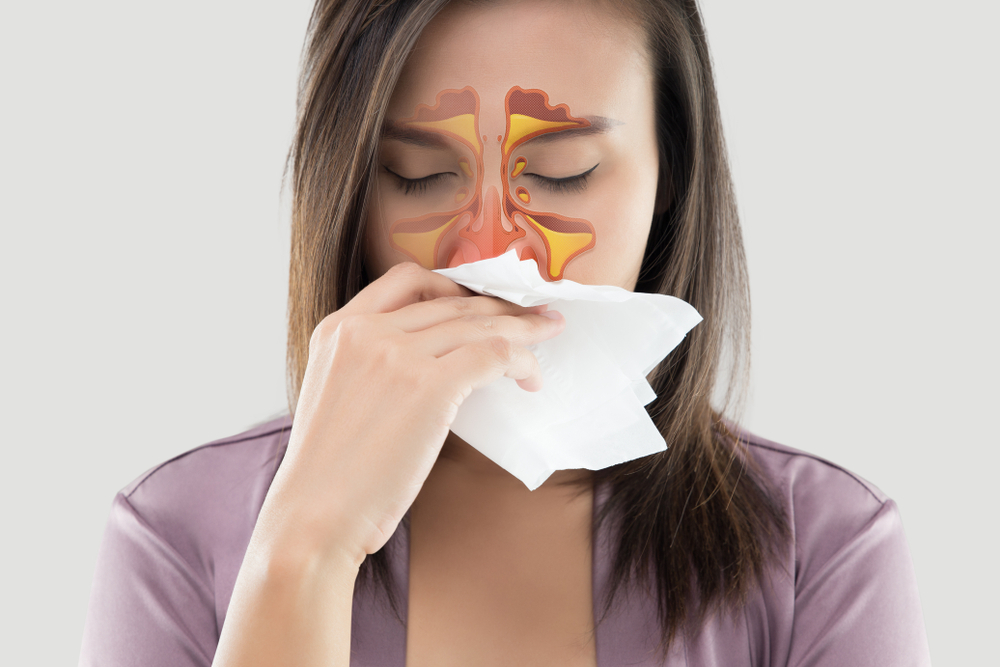Severe headache, which usually occurs around the eyes, facial fullness and heaviness, runny nose and post-nasal drip, dry cough, nasal congestion… Sinusitis, which reduces the quality of life with such complaints, is mostly seen in the winter months.
This is because we spend more time indoors in winter. The air dries up in closed environments due to lack of air and heating systems. Dry air weakens the immune system of the nasal mucosa, making the nose open to infections such as viruses and bacteria.
The number of people who get upper respiratory tract infections in winter is higher, and being in closed environments triggers the spread of the infection. When simple infections of the upper respiratory tract progress, it can cause sinusitis. Read the rest of the article to learn about the ways to prevent sinusitis, which is the fearful dream of winter.
Ventilate the indoor environment frequently
The most important reason why sinusitis increases in winter is to spend time in stuffy rooms and to be exposed to the risk of infection due to lack of ventilation. Therefore, ventilate the indoor areas you are in as much as possible. Take care to breathe fresh air often.
Don’t be exposed to the wind
The perceptible temperature change we are exposed to in the wind and breathing dry air are another reason that increases the risk of sinusitis. Therefore, it is very important to prevent the nose from drying out by keeping your mouth and nose closed in windy weather and to avoid being exposed to cold.
Moisturize your nose in dry and cold weather
When congestion and environmental factors are added to the dryness of the nose, sinusitis may develop in the days following upper respiratory tract infections. Moisten your nose frequently with water, use moisturizing liquids or gels if it gets too dry.
Thin your clothes when you go indoors
Another important point you should pay attention to in order to protect yourself from sinusitis is that you do not feel cold when you are sweaty and that you should thin your clothes when you are indoors. Because sudden changes in temperature become a predisposing factor for infections. Sudden changes in the ambient temperature of 6 degrees increase the risk of developing upper respiratory tract infections, which can lead to the development of sinusitis. Microorganisms break the mucous barrier very easily with this sudden temperature change, making it easier for bacteria and viruses to enter the body.
Place a wet towel on the heater
It dries up in hot environments. Dry air weakens the immune system of the mucous membrane in the nose, making the nose open to upper respiratory tract infections. It will be the most practical solution to put a wet towel on the core of the heater in hot environments.
Keep the humidity high in the air conditioner
Since air-conditioned areas create a feeling of dryness in the nose, it causes weakening of the immune system in the nasal mucosa. In air conditioning systems, take care to keep the humidity in the optimal ambient air ratio.
Do not neglect water and seasonal fruits
Daily fluid intake should be mainly with drinking water and fruits. Vitamins and water in fresh fruits are important for our immune mechanism as well as our metabolism.
Do not smoke
In addition to the fact that the substances in cigarettes are carcinogenic, they also have a destructive effect on the nasal mucosa, which is a barrier for bacteria and viruses. The nasal mucosa and the mucosa lining the sinuses are continuous. It has a great moisturizing, slippery and particle retention function. Smoking interrupts these functions. Therefore, do not smoke and stay away from smoking environments.

